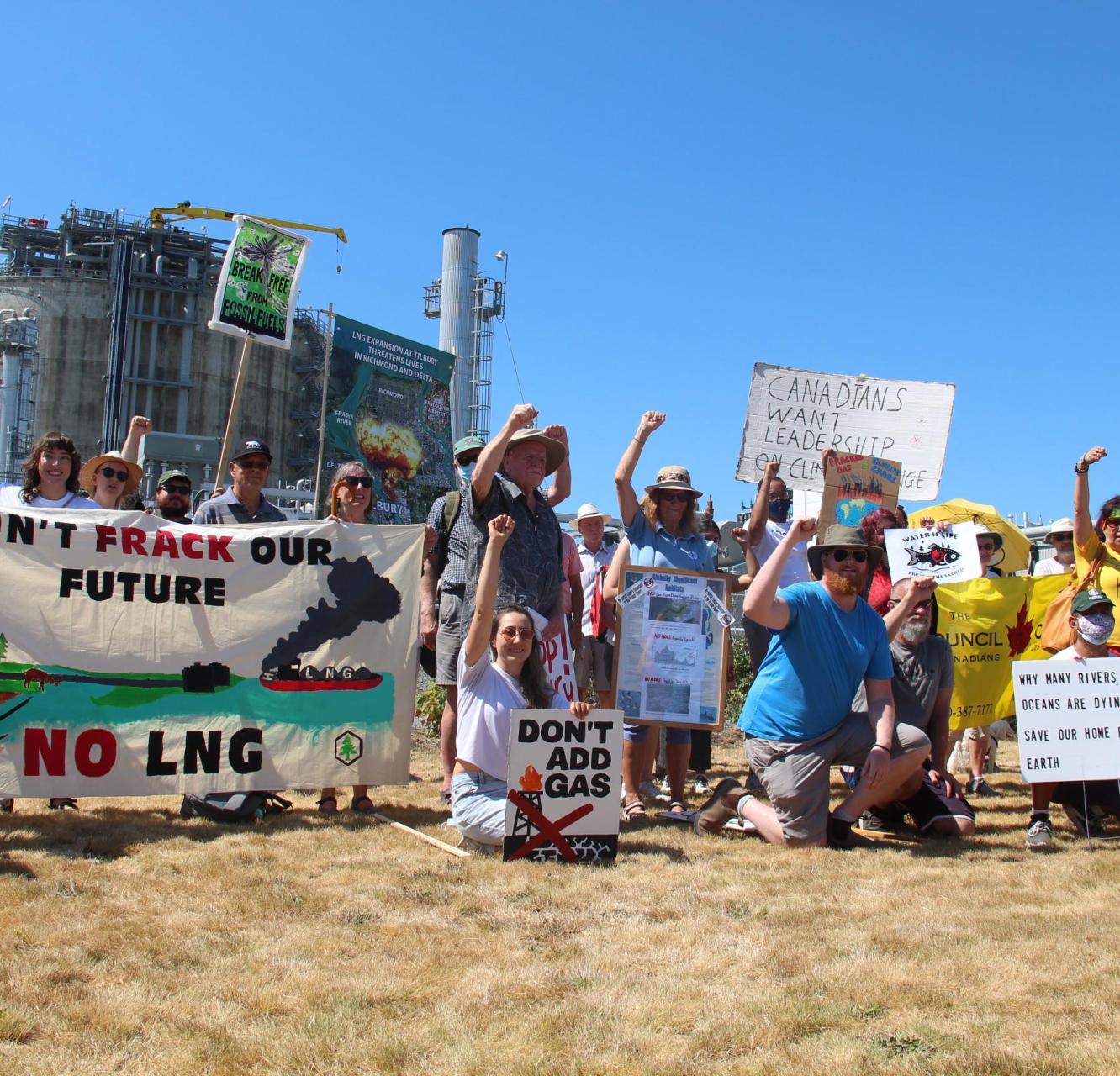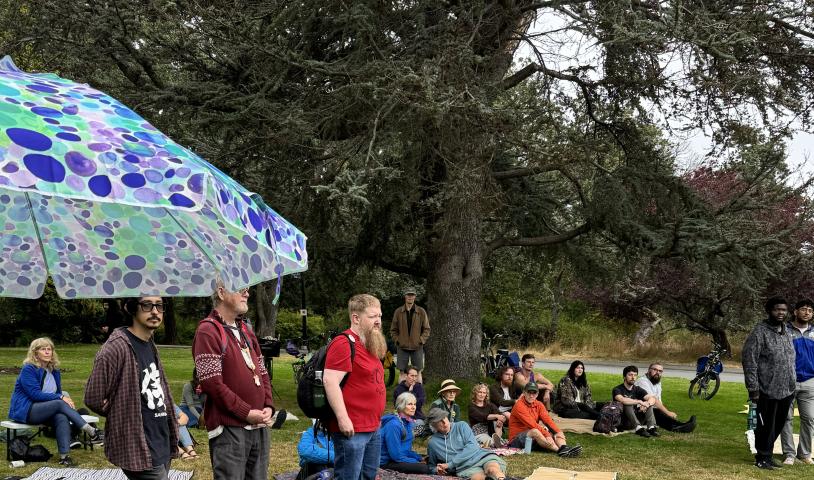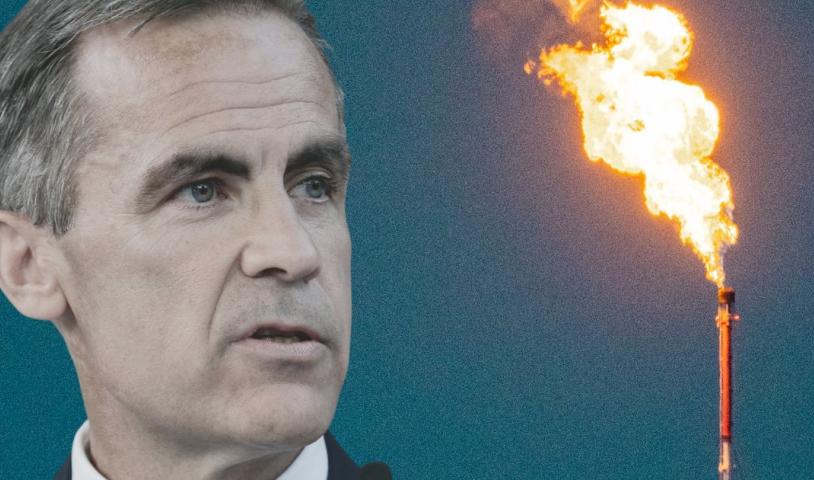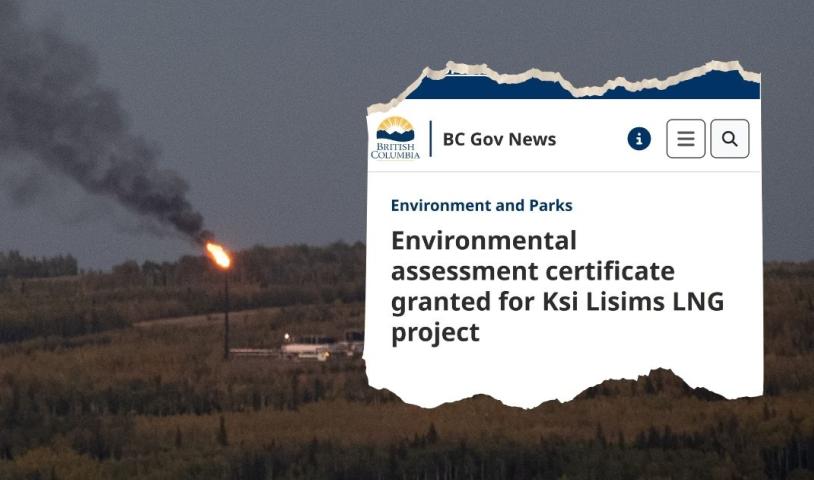B.C. NDP government must say no to the Tilbury LNG expansion
Wednesday, April 30, 2025The B.C. government is at a crossroads. FortisBC, a private gas utility company, wants to lock us into more fossil fuel expansion with the Tilbury LNG (Liquified Natural Gas) project in Delta. This facility would emit as much carbon as the entire city of Vancouver does every year.
The public comment period on FortisBC’s environmental assessment application closed in March and now it’s time for Premier David Eby, the BC NDP government and the Environmental Assessment Office (EAO) to make a choice: Will they protect our future by rejecting this application or greenlight a climate catastrophe?
The impacts of climate change are here. Climate disasters are costing the province billions of dollars each year through the floods, wildfires and heat waves that destroy communities, homes and lives. The province is also deploying resources to support climate change-exacerbated disaster management efforts outside the province, like the wildfires in California earlier this year. There is no justification for expanding fossil fuel infrastructure like Tilbury LNG in a climate emergency.
The Tilbury LNG expansion facility would annually export 2.5 million tonnes of liquified fracked gas — a potent fossil fuel mostly made up of methane — from Northeast B.C. A recent Cornell University study shows that LNG has a 33 per cent greater greenhouse gas contribution than coal. The B.C. government confirmed we're not on track to reduce emissions by 40 per cent by 2030 as per its CleanBC plan, and approving this expansion project would be another gigantic and dangerous misstep in the wrong direction.
The B.C. government no longer requires LNG facilities to be “net-zero” by 2030. However, they must be capable of achieving the goal by that date, supposedly through electrifying all proposed LNG facilities in B.C. But this plan would require 8.4 times more power than the maximum output of the massive Site C dam — it’s power we simply don’t have. Tilbury LNG Phase 2 alone would require electricity equivalent to over half of Site C’s capacity.
The limited electricity we have should be going to communities, homes and businesses. It should support a diverse, post-carbon economy and not be funneled to fossil fuel facilities at discounted rates, that represent yet another huge subsidy.
Additionally, while FortisBC has promised to implement fugitive emissions management, methane leaks occur all along the supply chain, from drilling and fracking to liquefaction facilities to transport and shipment. Even in small amounts, methane — which has a 84 to 87 times greater impact than carbon on a 20-year time frame — further contributes to misreporting of the true costs of this project.
There is no possible scenario where the Tilbury LNG facility, or any LNG facility for that matter, could be net-zero.
FortisBC claims its facility will provide LNG as a lower-carbon fuel for marine vessels, as part of its contribution to reducing global greenhouse gas emissions. A report from the International Council on Clean Transportation, however, demonstrates that LNG is no better in terms of the 20-year global warming potential than other marine fuels. Increased tanker traffic associated with the project would also have devastating impacts on salmon in the Fraser River delta, further threatening the endangered southern resident killer whale.
Beyond the climate costs of this project, which on their own should disqualify it, there is no economic argument for expanding Tilbury LNG. Global LNG market analyses suggest the economic future is highly uncertain with demand for LNG likely already peaked or peaking before Tilbury LNG’s completion. Even if it does reach the market, B.C. LNG will not be competitive with lower cost producers. Exporting LNG will likely raise energy costs for the public here, as seen in the U.S. and Australia. At a time where the cost of living crisis is already a major concern and gas bills are already on the rise, this spike will spell disaster.
As Premier Eby publicly said, “We cannot continue to expand fossil fuel infrastructure and meet our climate goals.” Tilbury LNG poses health and safety risks for millions of Metro Vancouver residents and for the province as a whole though the devastating climate impacts it will cause. The B.C. EAO should not let this project proceed any further. If it fails, the Premier and the BC NDP government needs to do the right thing and reject it.




